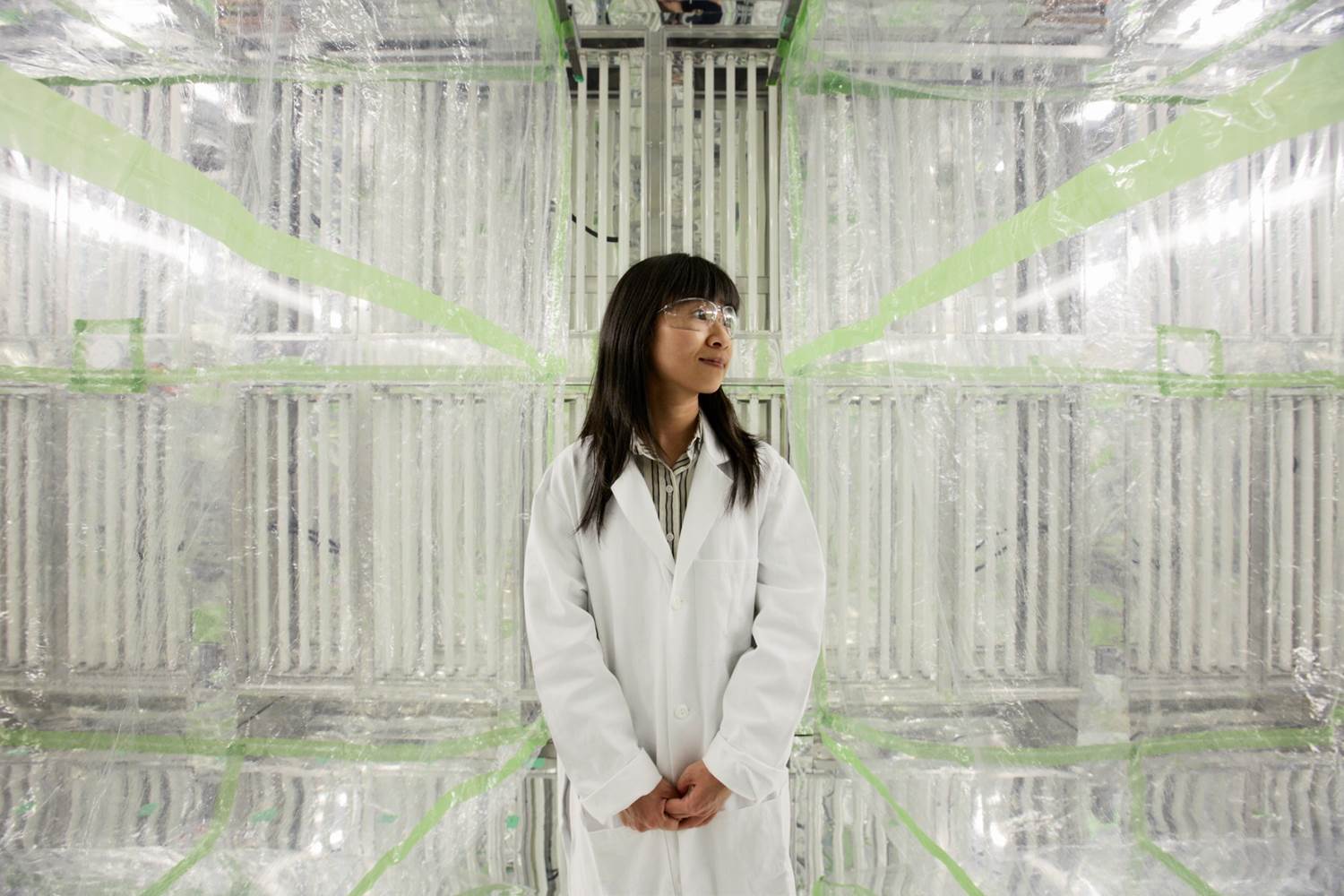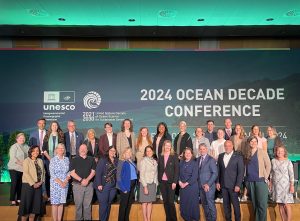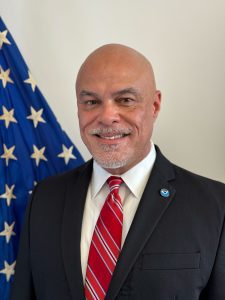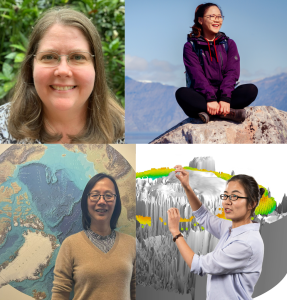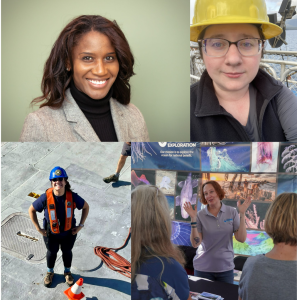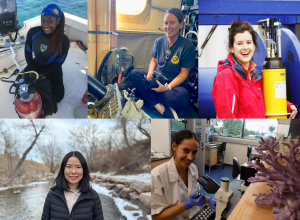Nga Lee “Sally” Ng is an atmospheric scientist funded by the Atmospheric Chemistry Carbon Cycle and Climate (AC4) program in NOAA’s Climate Program Office. Sally is an Associate Professor in the School of Chemical & Biomolecular Engineering at Georgia Tech, where she holds a joint appointment in the School of Earth & Atmospheric Sciences and a courtesy appointment in the School of Civil & Environmental Engineering.
Sally's research focuses on the fundamental understanding of the underlying chemical mechanisms of aerosol (fine particles suspended in air) formation and composition, as well as the health effects of aerosols. Last year, Sally participated and heavily contributed to a mission to collect air quality data in Atlanta during Covid-19.
What drew you to your current career or field?
I studied at the Hong Kong University of Science and Technology as an undergraduate and majored in Chemical and Environmental Engineering. As an undergraduate student, I was drawn to a research group that studies atmospheric aerosols and air pollution, and I joined the group as an undergraduate researcher. I enjoyed this research experience tremendously and was excited to learn that I could apply fundamental knowledge in chemical engineering – kinetics, transport phenomena, and thermodynamics – to address an important environmental problem.
During my undergraduate studies, I also participated in a student exchange program at the University of Minnesota for a year and realized how much cleaner the air in Minneapolis was compared to Hong Kong at that time. I started thinking about choosing a career path to help to solve the air pollution problem. I felt I did not know enough about the topic and started considering applying to graduate schools. As I was the first one in my extended family to attend college, no one in the family knew what graduate school entailed. My undergraduate research advisor guided me through the graduate school applications process. Ultimately, I came to the U.S. to pursue a PhD to study aerosols as I was fascinated by this research topic and wanted to learn more.
What experience or advice helps you when you’re faced with setbacks?
I find that it helps to step back from the problem at hand for a day or two and come back to it when one has a clearer state of mind. I always find it very helpful to share and talk with family, friends, and mentors. As some of my closest friends are also in academia, we usually face the same challenges. Knowing that I am not the only one encountering some of these challenges is comforting, and helps me to gain a better perspective to overcome the setbacks.
When I am faced with setbacks, I remind myself of why I am in this field and career in the first place. The love we have for what we do helps us power through the various challenges and hardships we encounter in our careers. I feel it is important to follow a career path that one is truly passionate about. This helps to overcome the setbacks more easily.
Given the drastic changes in work environments, how do you see your workplace changing in the future, or what do you hope will change?
As a faculty member, besides the times that we are teaching, our schedules are flexible and we can freely decide how to spend our time. Many of us are familiar with working remotely, although the pandemic brings remote work to a whole new level. In terms of teaching, it is clear that no matter how advanced the technology is, the in-person teaching component is critical and valuable and cannot be fully replaced. I look forward to going back to normal and seeing and teaching all my students in person.
Scientifically and professionally, one of the major changes we encountered this past year was the shift to virtual conferences and seminar series. While we will likely move back to in-person conferences after the pandemic, I think the virtual format for research talks is here to stay and we will continue to see meetings (conferences, workshops, seminars, etc.) still being held virtually in the future.
What do you enjoy most about your work?
I enjoy learning. If I could, I would love to be a student forever, and I think being a professor is the closest I can get to being a student forever. I like that my work allows me to explore the unknown, discover, and learn something new and exciting all the time. I have the flexibility to pursue any research topics that I deeply care about. I also like that I get to work with many curious and enthusiastic students. This is one of my main motivations of being a professor. It is the most rewarding thing to see the scientific and professional development of my students, and that I have the opportunity to teach them and share the journey with them.
What do you hope to accomplish in the future? What do you hope the future for women in science looks like?
I hope to continue to work in the field of atmospheric aerosols to help achieve a better understanding of their formation and properties, as well as their impacts on human health and climate. I also hope to continue to pursue interdisciplinary projects related to atmospheric aerosols, such as linking aerosol composition and properties to health effects.
I wish that in the future, we will not have to specifically talk about “female scientists” and that we will achieve greater gender equality in STEM fields. I have never felt consciously that I was a “female graduate student” during my undergraduate or PhD study. However, as I progress in my career, the identity of a “female professor,” “female scientist,” or “female engineer” sticks out more and more. The leaky pipeline problem is real. I will continue to contribute my part to promote the entry and inclusion of women and underrepresented minority students in STEM.
What advice would you give to women who are starting out in their careers?
I think it is very important to have supportive mentors. I have been very fortunate to have many remarkable mentors who showed me possibilities and opportunities and encouraged me in the pursuit of an academic career. We learn how to do research as a graduate student and postdoc, but to be successful in academia requires other skills in addition to research skills. It is very helpful to have a mentor or multiple mentors that one can always turn to and get advice to navigate the landscape of an academic career. I would also encourage women starting out in their careers to continue to believe in themselves, and not let momentary setbacks and hardships along the way discourage them from pursuing a career path that they are passionate about.
